When it comes to safeguarding your organization's sensitive information, a well-crafted non-disclosure agreement (NDA) is essential, especially for board directors who hold pivotal roles. This template not only sets clear expectations about confidentiality but also fosters trust among your leadership team. By outlining the responsibilities and the importance of discretion, it ensures that proprietary information remains protected. If you're interested in learning how to effectively implement this NDA for your board members, keep reading!
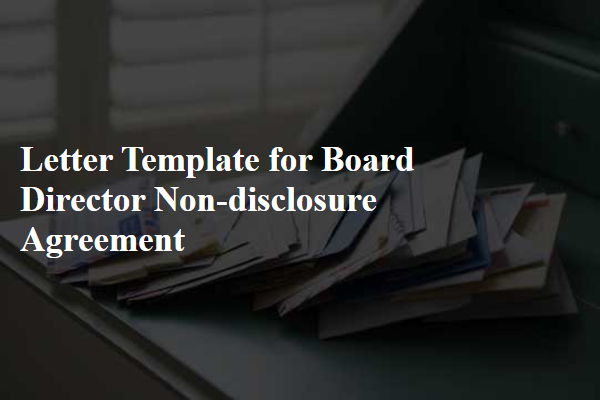
Purpose and Scope of Confidentiality
A non-disclosure agreement (NDA) serves to protect sensitive information shared between a company and its board directors. The purpose of confidentiality encompasses safeguarding proprietary data, trade secrets, and strategic plans from unauthorized disclosure. This includes, but is not limited to, financial reports, upcoming product launches, customer lists, and intellectual property rights. The scope extends to any communication, documentation, or electronic correspondence related to board activities. Furthermore, the NDA stipulates the duration of confidentiality obligations, typically lasting until the information becomes publicly available or the company formally releases the information. Violations may lead to legal repercussions, emphasizing the significance of trust within the organization.
Definitions of Confidential Information
Confidential Information includes proprietary data, business strategies, financial records, client lists, intellectual property, and other sensitive information disclosed by the company (such as TechCorp Inc.) during the course of meetings, communications, or collaboration. Such information may encompass trade secrets, project details, marketing plans, product specifications, and any internal documentation that is not publicly available. This definition extends to all formats of communication (written, oral, or electronic) and includes any derivatives or analyses created from the original information. The obligation to maintain confidentiality applies regardless of whether the information was marked as "confidential" or explicitly identified as such. Unauthorized use or dissemination of this information may result in legal actions under applicable laws.
Obligations of the Director
The obligations of the Director include maintaining the confidentiality of sensitive information acquired during their tenure. This sensitive information may pertain to proprietary business strategies, financial data, or other critical documents related to the company's operations. The Director must not disclose any confidential information to third parties without prior written consent from the board. Additionally, the Director is responsible for implementing precautionary measures to prevent unauthorized access to confidential materials, ensuring that their handling adheres to both legal and ethical standards. Upon termination of their position, the Director is obligated to return all confidential documents and any copies thereof, ceasing any use of the sensitive information. Violations of these obligations can result in legal repercussions and financial liabilities for the Director involved.
Duration of the Agreement
A Non-Disclosure Agreement (NDA) for board directors typically specifies a duration that outlines the timeframe during which confidential information must be protected. In most cases, this duration may range from three to five years, depending on the nature of the business and the sensitivity of the information involved. During this period, directors must refrain from disclosing any proprietary information regarding business strategies, financial data, or trade secrets obtained during their tenure on the board. Furthermore, the NDA might include a clause extending confidentiality obligations beyond the duration of the agreement, ensuring long-term protection for the organization's critical intellectual property and maintaining competitive advantage. The specifics of the duration are crucial in setting clear expectations and legal frameworks to safeguard sensitive information from potential misuse by board directors.
Consequences of Breach
A breach of a non-disclosure agreement (NDA) for board directors can lead to severe repercussions, impacting both individuals and the organization. Violations may result in legal consequences, such as lawsuits, which can incur significant financial costs and damage to reputation. Confidential information, like trade secrets or proprietary data, exposed due to a breach can lead to competitive disadvantages, estimated in potential financial losses reaching millions of dollars. Furthermore, the organization may experience a decline in stakeholder trust, jeopardizing future partnerships and investments. Disciplinary actions against the board director may include termination of their position, along with potential civil liability, depending on the severity of the breach. In high-stakes environments such as publicly traded companies, regulatory fines could also be imposed when sensitive data is mishandled. Protecting proprietary information through strict enforcement of the NDA is crucial to maintaining the integrity of the organization.

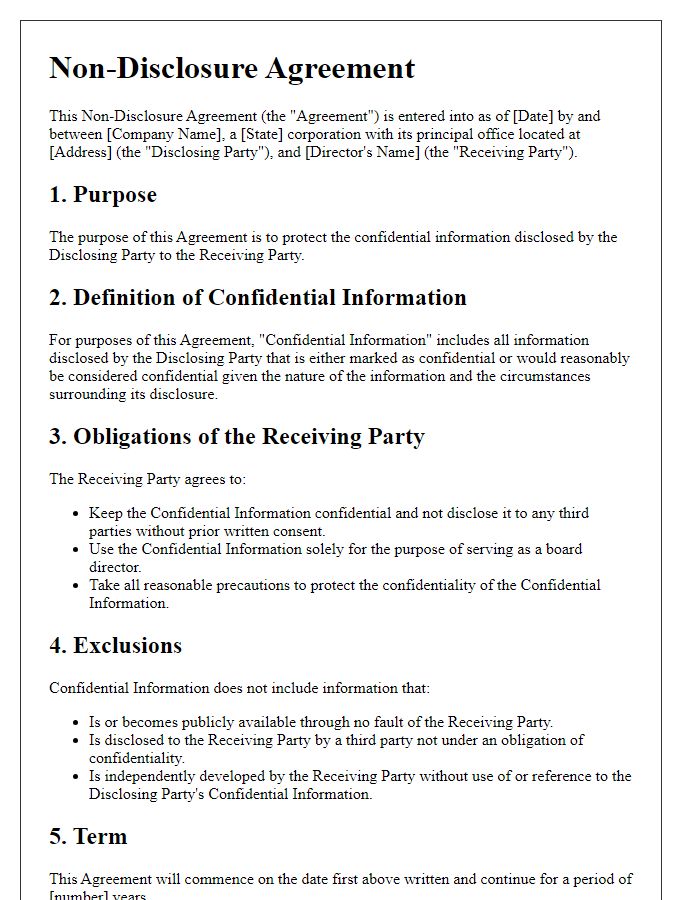
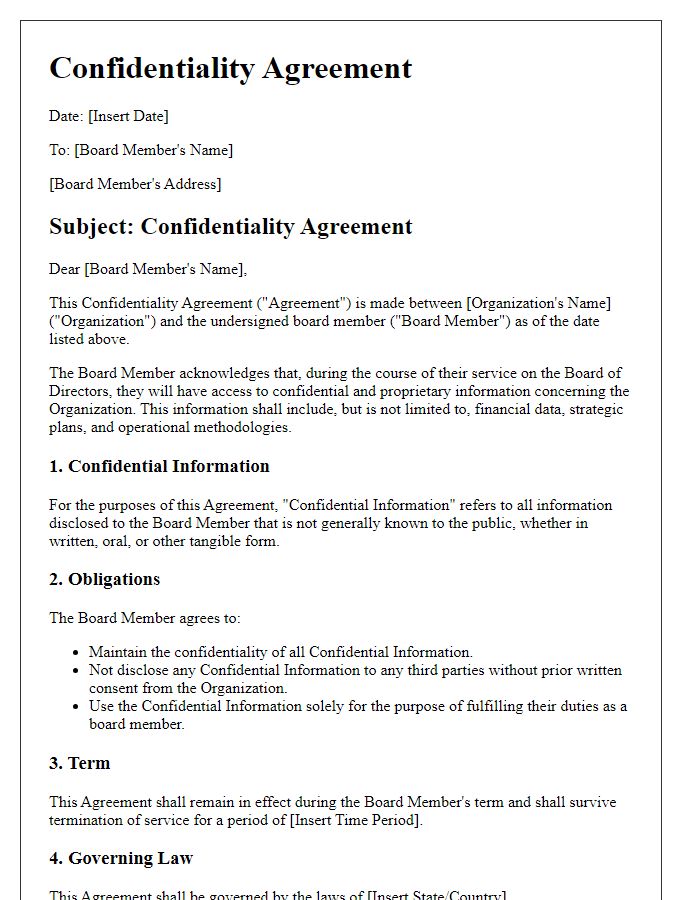
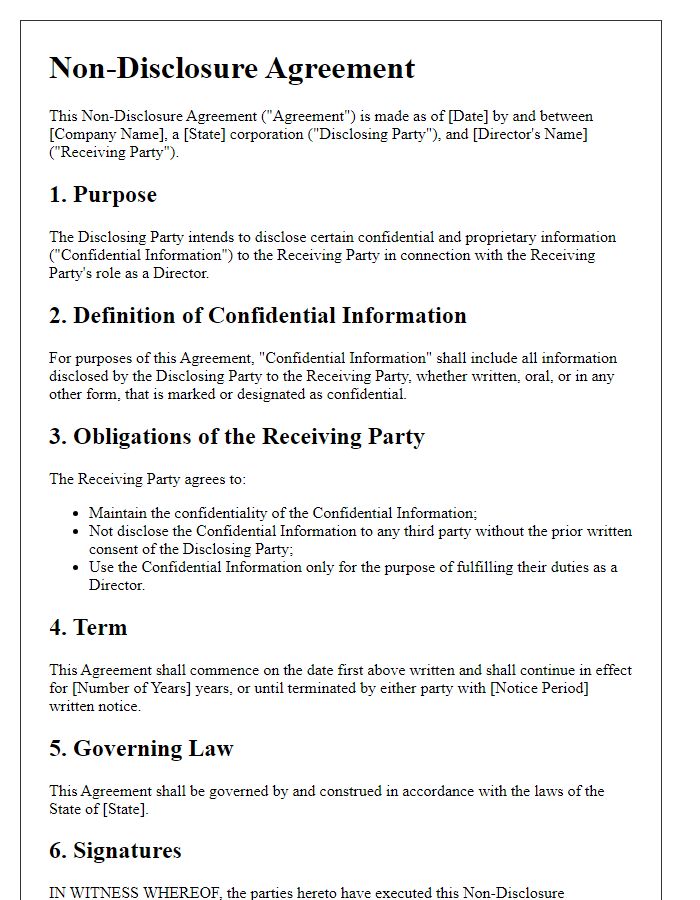
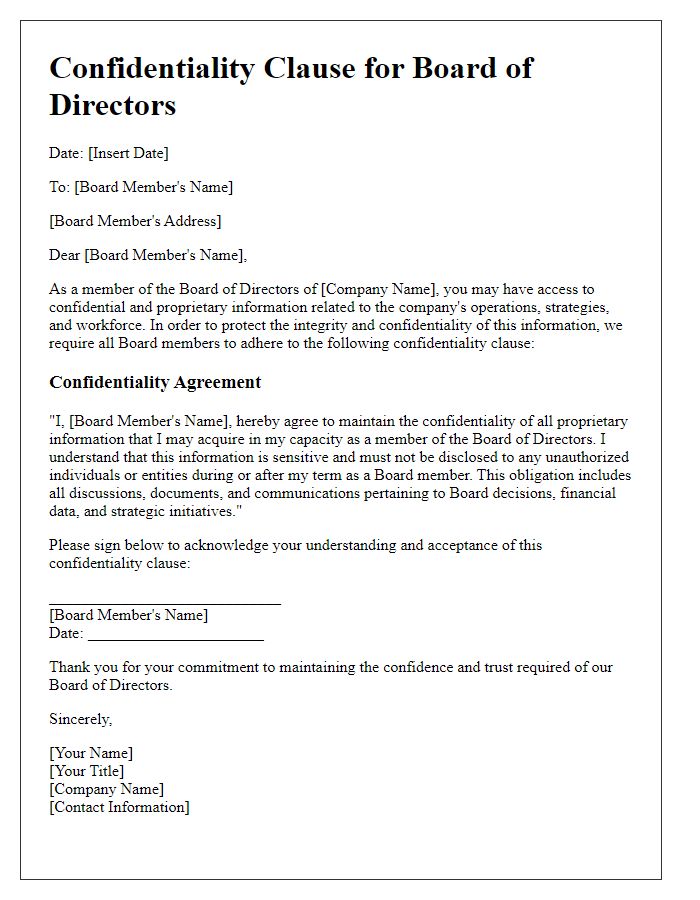
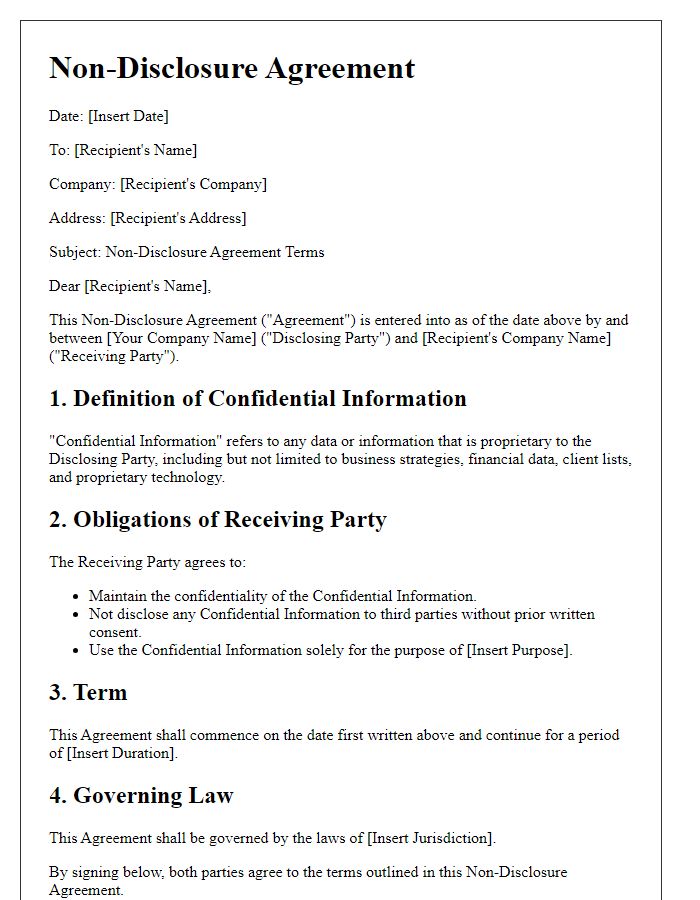
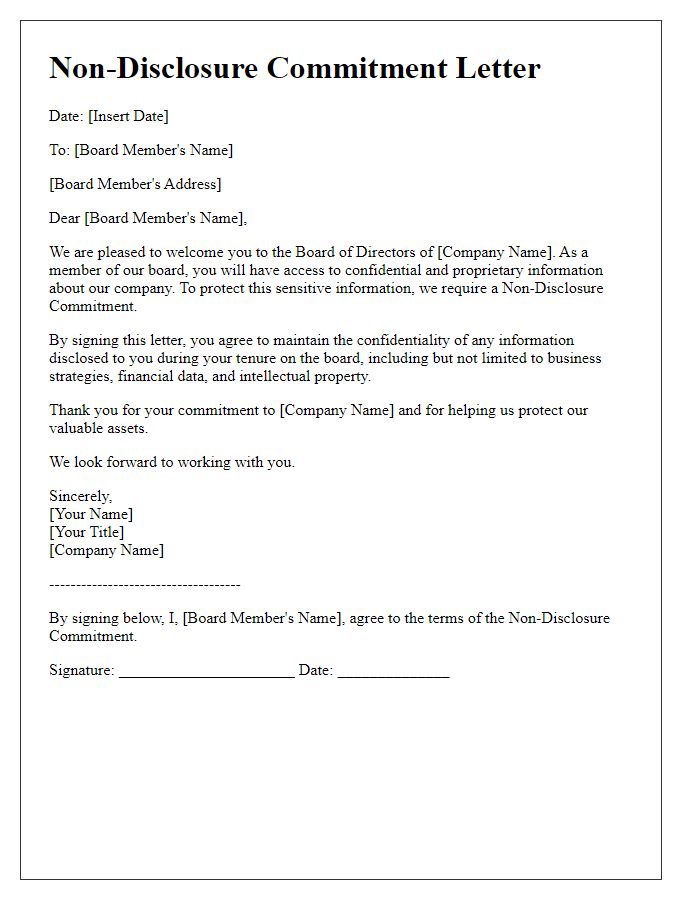
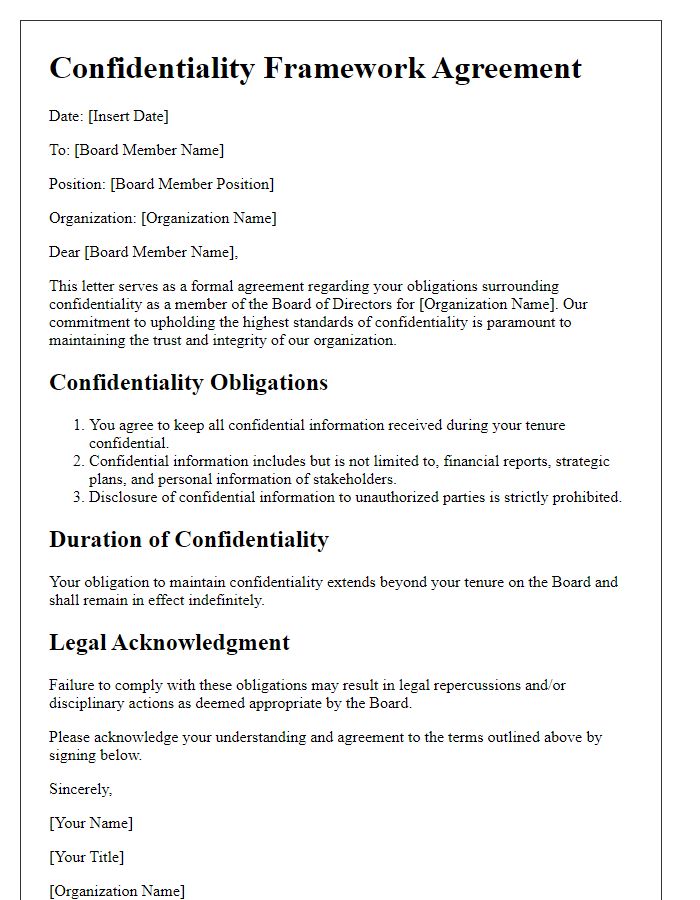
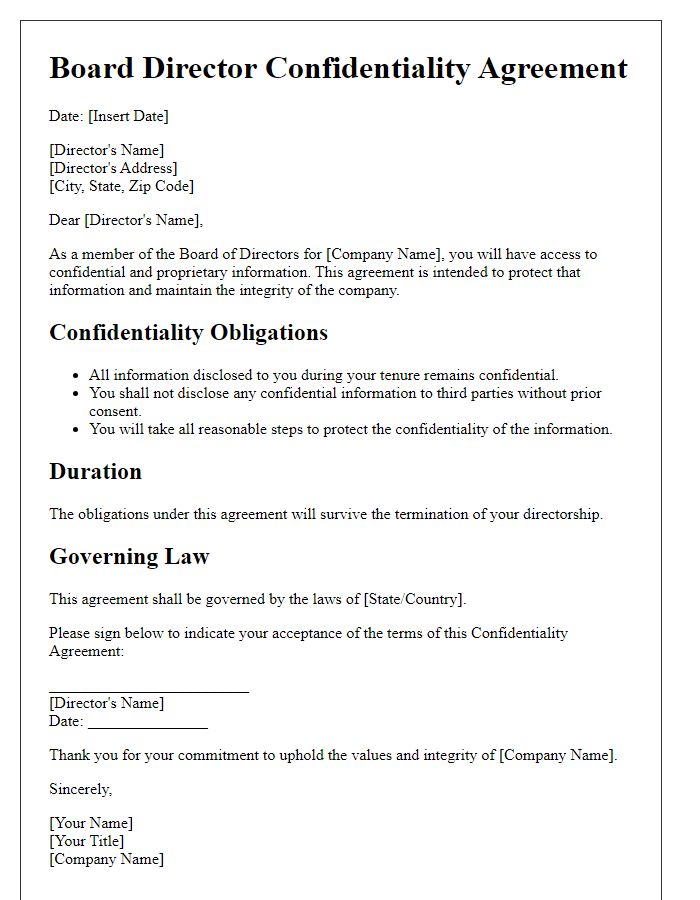
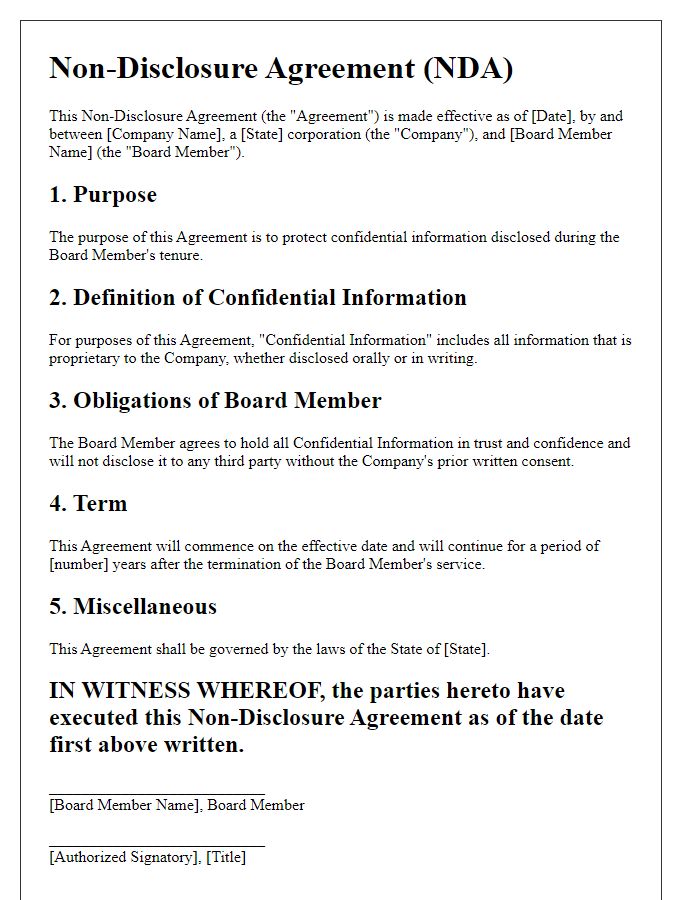
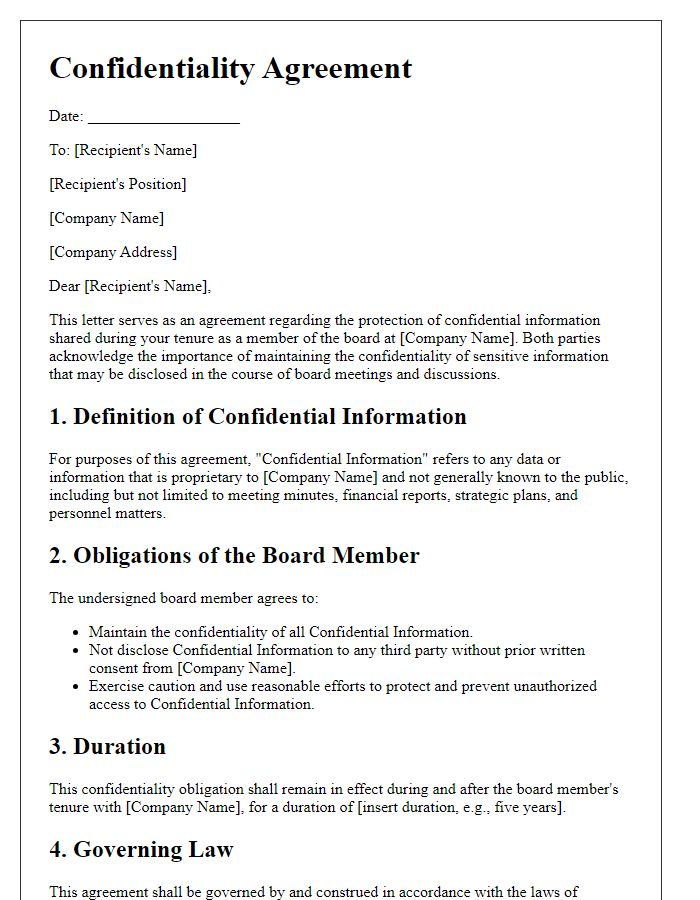


Comments